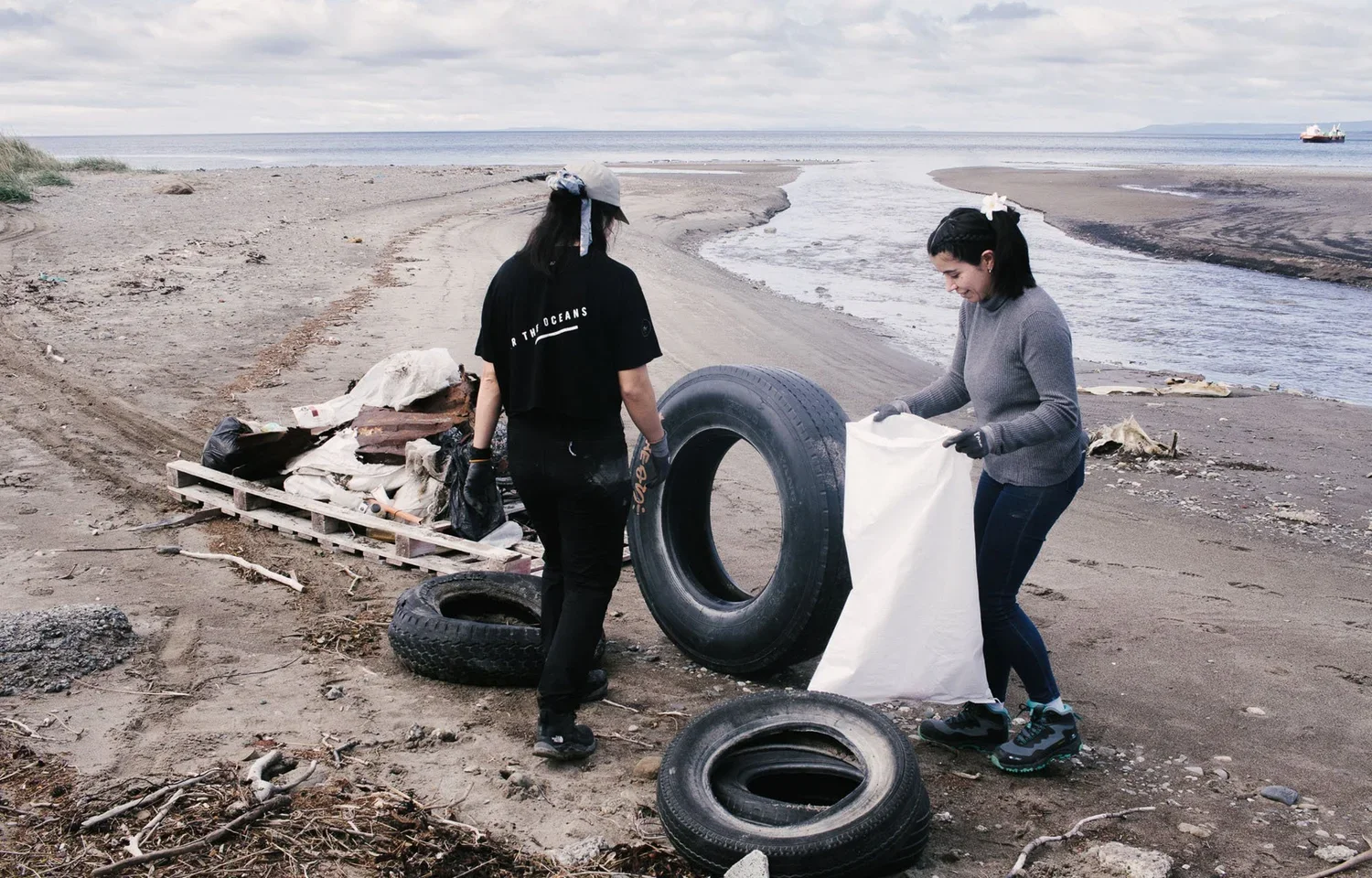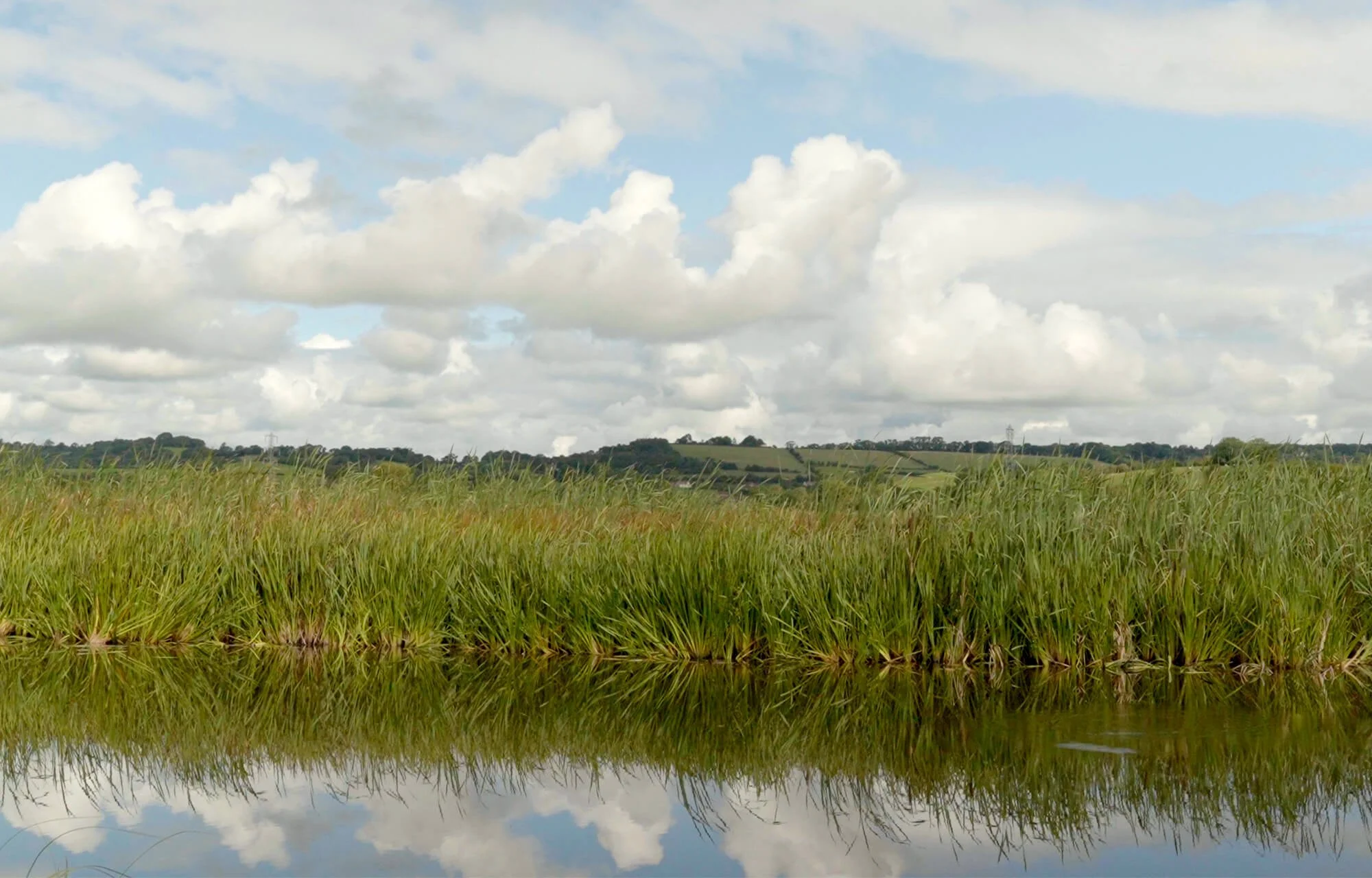Take Action – for the oceans, climate and life
101 small steps you can take today as we work together to make the big changes our planet needs
According to the latest report from the Intergovernmental Panel on Climate Change (IPCC) climatic changes are now now “inevitable” and “irreversible” – but there is still hope if we act urgently.
If we can reach Net Zero by 2050 or sooner, we can still avoid some of the most devastating effects of global heating – although many of the consequences of our decades of inaction are now locked in. Global temperatures are very likely to rise by more than 1.5C, and further sea level rise is now a certainty, too . The oceans will continue to become warmer and more acidic, and the extreme weather experienced worldwide in 2021 is set to continue and likely intensify.
Before you despair, consider this: we have the warning signs the dinosaurs did not. The new IPCC report highlights the massive strides we’ve made in studying, mapping and modelling our current and future climate.
There is still time to turn things around, but it will require both the large-scale action we urgently need at COP26 and sweeping global policy change. In the meantime, every single one of us has a role to play, too. Small changes really do add up to massive ones when we all take action – so here are just 101 ways you can start making a difference today.
TAKE ACTION: FOOD
1. Eat a plant-based diet. Already do? Persuade a meat-eater to give it a try.
2. Cook. Take-out typically comes with a heavy side of plastic waste, not to mention the carbon used to deliver it all.
3. Put a lid on pots and saucepans; they’ll heat faster.
4. Compost. Keep it in your freezer to prevent funky smells.
5. Avoid food waste. Only buy or order what you can eat.
6. Buy local, fresh food that’s in season. Become a farmers market regular.
7. If you can’t make it to the farmers market, join a CSA. Or try a service that brings the farmers market to you.
8. Scan ingredients labels for this: palm oil. Avoid it. Palm oil production is a major contributor to deforestation.
9. Store your food properly in airtight containers, preferably glass or metal ones.
10. Pack a lunch for work or school. Try reusable, biodegradable alternatives to cling film, like cloth and beeswax wraps.
11. Savor climate-endangered luxuries responsibly. For example, choose beer, wine and chocolate from ethical origins and sustainably harvested ingredients, with minimal packaging.
12. Eat at a vegan restaurant. Even if you’re not vegan.
13. Filter your own water. And make your own alternative milks. Oats are having a moment.
TRANSPORTATION
14. Bike to work or school, or wherever.
15. If you can walk there, walk. Your legs and cardiovascular health thank you.
16. Take public transit.
17. Carpool with friends or neighbors.
18. Get your kids back on the school bus. One school bus can replace 36 private cars on roads and highways.
19. Check the air pressure of your car tires for maximum fuel mileage efficiency.
20. Renting > buying. If you have the choice, go with a hybrid or electric vehicle.
21. Trains > planes. If you must fly, book direct flights. Most fuel is burned during takeoff and landing.
22. Economy > first class (in emissions savings, if not legroom).
23. Offset your travel. It’s easier and more affordable than you think. Check your airlines’ sustainability pages.
AT HOME
24. Replace old windows and seal any drafts.
25. Close the curtains at night. This prevents heat from escaping through windows.
26. This one’s huge – only fill the kettle with as much water as you need. It’s one of the most energy-intensive appliances, so every second it’s not powering away heating water will help.
27. Another massive one – turn the thermometer down a notch or two. Most people sleep better if it’s slightly colder, and the savings are huge. In the UK alone, a single degree difference would prevent 3.3 million tonnes of carbon emissions every year.
28. Microwave small dishes instead of heating up a convection oven.
29. Use a toaster instead of the broiler.
30. Grow something in your home. Plants produce oxygen and help purify the air. Plus, they make people happy and more productive.
31. Weather-proof your apartment or home; seal cracks in floorboards, doorways and windows.
32. Paint your walls, ceilings and floors in light colors. They reflect natural light better, so you don’t have to create your own.
33. Downsize your home. Living large is passé. Tiny houses keep your loved ones closer.
34. Give the vacuum a rest. Sweep the floor, shake out the rugs and try green cleaning products.
35. Give the blowdryer the day off. Your hair wants to air dry.
36. Choose home furnishing made with low-VOC and eco-innovative materials. Some paints, glues and foams release volatile organic compounds into the atmosphere, and many also disperse significant greenhouse gases in manufacturing.
37. Seek out companies that recycle old carpets. Support them.
38. Build with reclaimed or sustainably harvested wood.
39. Take shorter showers.
40. Water your lawn less frequently.
41. And maybe don’t buy those cut flowers wrapped in plastic. Many are flown in (more carbon) from places like Kenya where water is already scare for people who need it more.
EVERYWHERE
42. Turn off the lights and fans when you leave a room.
43. Opt for minimal packaging when ordering online. And try to avoid returns.
44. Go paperless with all your bills and cancel all the junk mail that arrives.
45. Responsibly recycle e-waste.
46. Take care of your phone and only replace it when you need to. Return or recycle your old one when you do.
47. Choose products made from recycled paper.
48. Repair what’s broken before buying new.
49. Recycle your cans! Recycling one aluminum cans saves enough energy to run a TV for three hours.
50. Divest from fossil fuels.
51. Talk to your neighbors. There’s strength in community.
52. Make art, music, poetry… history.
53. Do citizen science.
AT WORK
54. Engineers and material scientists: invent a better car tire.
55. Use a laptop instead of a desktop computer and enable ‘power saving mode’ on any office appliances.
56. Opt for online meetings to cut down work travel – bonus points for doing this with international trips.
57. Write fewer, more efficient emails. Every email has a carbon footprint; 65 emails sent is the equivalent of driving a gas car 0.6 miles.
58. Think before you print, please.
59. Ask yourself how your industry can make a difference and how your company might contribute. Then tell all your coworkers about it like the office activist you are. Just own it.
60. Keep to-go cups handy for coffee runs, and bring reusable containers and utensils on lunch breaks.
61. Get an office audit to understand where you’re using (and wasting) the most energy.
62. Recycle the waste you can’t avoid in the first place.
YOU
63. Educate yourself. There are no stupid questions. Especially about climate change.
64. Educate the next generation — and listen to what they have to say. Youth represent 100% of the future. Shout out to Ocean Uprise.
65. Empower women. And learn why Katharine Wilkinson says “gender and climate are inextricably linked.”
66. Plant something outside – like a carbon-sequestering tree.
67. Join (or start) a community garden, orchard, forest or wildspace.
68. Become a beekeeper, and buy local honey to support your local ecosystem.
69. DIY this year’s holiday presents and decor – don’t forget to avoid glitter aka microplastic insanity.
70. Wear reef-friendly sunscreen. Harmful chemicals in your everyday products may be harming coral reefs.
71. Avoid cosmetics and personal care products that contain phthalates. These chemical compounds have proved to be bad for the oceans and harmful to human health.
72. Learn how sea level rise will affect your neighborhood.
73. Invest in a green (or blue) economy and renewable energy.
74. Donate to conservation NGOs.
75. Use your ‘influence’ on social media. Stand for something
76. Go to the beach or a national park and soak in the beauty.
77. Share your personal climate change story.
78. Look in the mirror and ask yourself why you care.
78. Support climate policy and candidates who support climate science. VOTE.
80. Talk about climate change and challenge your friends and family to join the conversation.
81. Ditch plastic. And stop thinking of plastic pollution as a separate conversation. Plastic is made from fossil fuels and releases heat-trapping greenhouse gases into the environment. 31 tips for avoiding the stuff here.
CLOTHING
82. Buy second-hand clothes. Vintage: so hot right now.
83. Host a clothing swap with your friends.
84. Less is more — embrace minimalism by shopping quality over quantity.
85. Wash your clothes on cold and take steps to reduce the release of microfibers.
86. Line or air dry your laundry. Sunlight and fresh air are miracle cleansers.
87. Shop for the economy you want. Support brands that align with your values.
88. Donate your old clothes to give them a second life before they end up in a landfill or being incinerated, creating even more emissions.
89. Don’t be so quick to toss clothes out — if possible, mend or repair clothing instead of buying new.
90. Buy less, but smarter. Support companies that champion sustainability efforts and choose natural fibers over synthetics.
91. Instead of buying new, try renting your closet for clothes you know you’ll only wear a handful of times.
ENERGY CONSUMPTION
92. Audit your energy use. You can’t manage what you don’t measure.
93. Walk around your home and unplug idle electronics. Even ‘off’ mode sucks energy from the socket.
94. Put your phone (and other gadgets) in low power mode.
95. Give the AC a rest. Open a window
96. Give the heat a rest. Put on a sweater.
97. Switch to energy efficient appliances.
98. Replace old light bulbs with CFL or LED lights. Make sure you recycle them properly when they burn out.
99. Install solar panels on your home and support pro-renewable energy policies.
100. Turn off the ice maker in your refrigerator.
101. Take the Parley AIR Pledge if you haven’t already – and consider how you can apply it to climate: Avoid plastic and carbon emission wherever possible, Intercept plastic waste and CO2 and help Redesign materials, methods and mindsets.




















